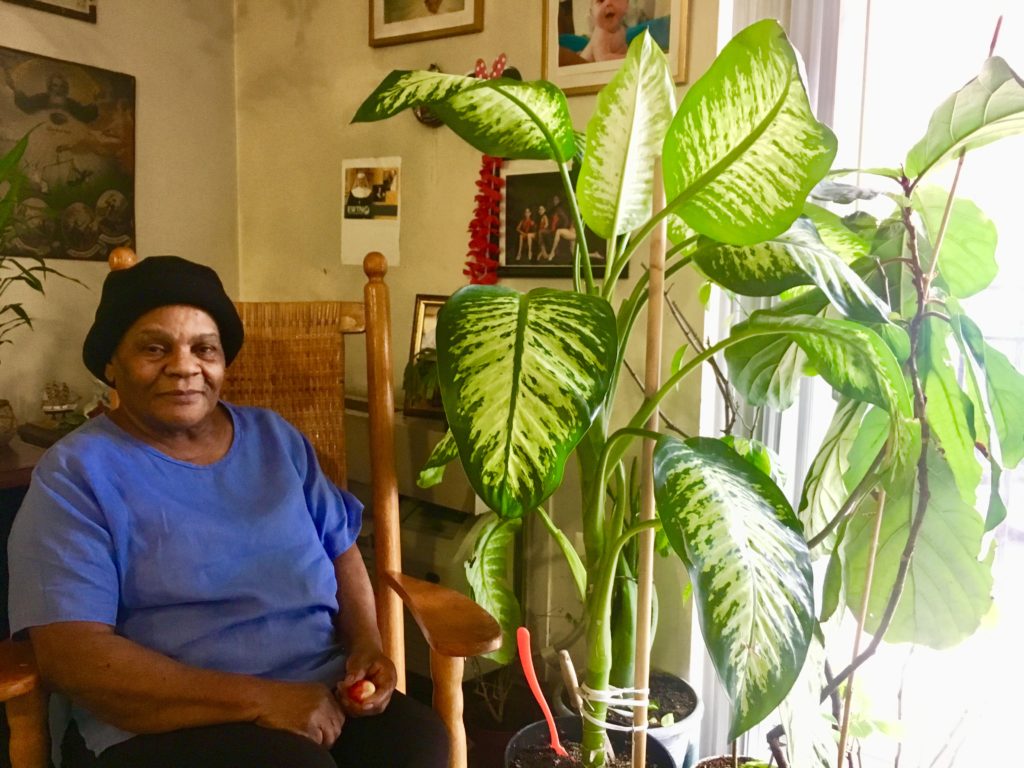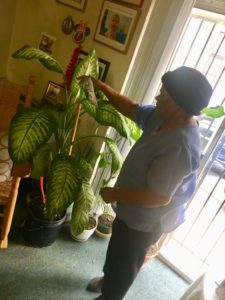This article originally appeared on the NHCOA blog. Para leer este artículo en español, clic aquí.

Agueda González is Dominican, and though she is 83 years old, she says she feels 60 (and that’s how she looks). A single mother, with a suitcase full of hope, she arrived in the United States more than 30 years ago. “I was 50 years old, another full life ahead and two beautiful children to be raised. Some friends told me, ‘Agueda you are too old to start a new life in a different country,’ and I answered them, ‘It will be a new life, and it is just the beginning’.”
For 18 years she cared for three girls, daughters of a Hispanic American couple that had helped to welcome Agueda to the country. “I consider them part of my family, and I’m sure they feel the same. In fact, the girls (already adults) come to visit me every week, to see how I am, to talk. I still give them advice on how to be a better person. ”
 Agueda stays active, walks at least 30 minutes every day, does her shopping, cleans her apartment, washes and iron her clothes, and takes care of her plants. During the winter she usually does what she likes most: cooking! She is very confident about her cooking skills. “I’m the best at preparing Bandera Dominicana which is a typical dish of rice, beans and meat.”
Agueda stays active, walks at least 30 minutes every day, does her shopping, cleans her apartment, washes and iron her clothes, and takes care of her plants. During the winter she usually does what she likes most: cooking! She is very confident about her cooking skills. “I’m the best at preparing Bandera Dominicana which is a typical dish of rice, beans and meat.”
I tried to ask her a question (and I say tried because Agueda did not let me finish the sentence). If you were offered a full-time job today … “Of course I would accept it,” she said loudly. “I am willing, eager, I cook delicious food. Unfortunately people associate age with disability, illness or fatigue, and that is wrong.”
Agueda is the perfect example for understanding the Latino culture. She currently lives at Casa Iris, a housing facility for older adults located in Washington, D.C., operated and managed by the National Hispanic Council on Aging (NHCOA).
“When I see some of my friends sad or complaining, I immediately tell them, ‘Wake up! Do not be sad, now is when you have energy left. Go water the plants, walk, enjoy the sun, and take advantage of your grandchildren’,” Agueda recommends.
According to the Status of Hispanic Older Adults, a report developed by NHCOA in 2017, most of the older adults in the Unites States live independently, healthy, and socially productive. This reality contrasts with the negative perception — supported most of the time by the media, entertainment, and the beauty industry — that becoming “older” is synonymous with deterioration, dependence and/or incompetence.
Faced with this reality, the leaders of national aging organizations (The American Society on Aging, Grantmakers in Aging, the Gerontological Society of America, AARP, the American Federation for Aging Research, the American Geriatric Society, the National Council on Aging, and NHCOA), have been developing the Reframing Aging campaign, whose goal will be to form, shape, and message public opinion to accept that older adults are, and always will be, a social and political necessity, both in this country and worldwide.
This project is based on studies and research conducted by the FrameWorks Institute that highlighted how messages such as “fighting” aging or the importance of “staying young” actually increase ageist attitudes, and this why, together, we need to underline the fact that wisdom, knowledge, experiences, and aging come together.
During 2018, NHCOA will continue developing the Reframing Aging campaign, through publications and national training sessions, as well as the development of the Thought Leaders Roundtable series in Washington DC, New York and New Mexico. In these Roundtable sessions, experts will be discussing how to socialize, promote, and message to the public that the idea of becoming an older adult does not mean reaching the end of the road.
The opinions expressed in this article are those of the author and do not necessarily reflect those of the Diverse Elders Coalition.

